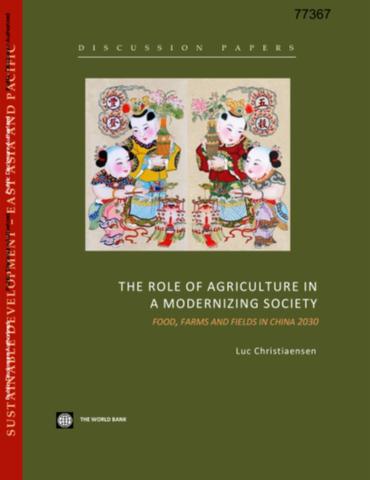Resource information
China's success in addressing food problems after adopting the reforms in 1978 has been nothing less than remarkable. Grain output (rice, wheat and maize) has almost doubled and most hunger has been eliminated. Ever since China embarked on its reform agenda more than 30 years ago, its economic growth and poverty reduction have been nothing less than remarkable. Agriculture has been an important contributor to these developments. Since 1978, China has almost doubled its cereal production (rice, wheat and maize) and it is now feeding 1.3 billion people, or 20 percent of the world's population, while having less than 11 percent of the world s agricultural land and less than 6 percent of its water. New challenges are presenting themselves for China's agriculture, and old ones are resurfacing. High (land saving) Total Factor Productivity (TFP) growth and increasingly open domestic and international markets, combined with grain self-sufficiency targets, a multitude of very small, fragmented production structures, and distorted land and labor markets have defined Chinese agriculture over the past three decades. The relative importance of agriculture s three problems in policymaking thus evolves during the course of development away from the food to the farm and field problems. This shift has however recently been compounded by a resurgence of the food problem, as global supplies struggle to keep up with demand. China's agriculture anno 2030 will be predominantly a modern commercial smallholder agriculture that ensures self-sufficiency in cereal food (rice and wheat), but not in cereal feed (maize and soybeans). The sector will maximize rural employment opportunities in labor intensive high value agricultural products and act as a diligent custodian of its precious natural resources.


